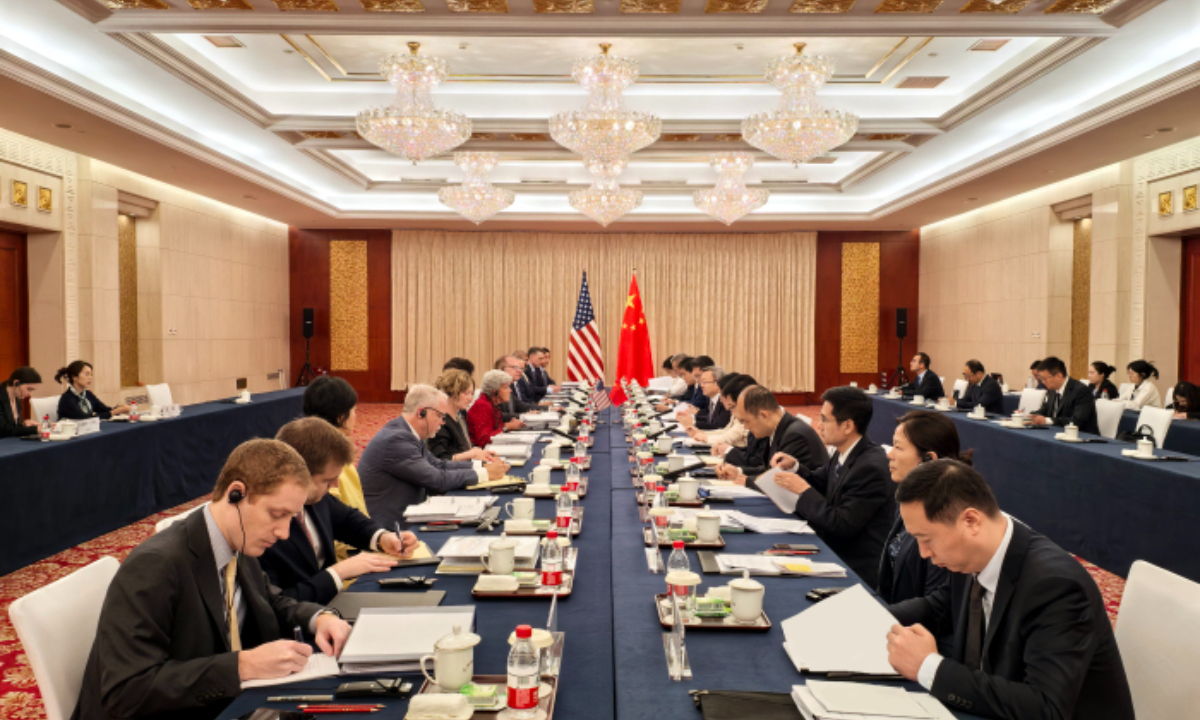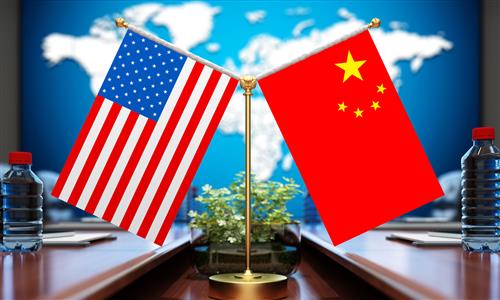China-US commercial, trade working group holds second vice-ministerial meeting in Tianjin

Photo: China's Ministry of Commerce
China International Trade Representative and Vice Minister of Commerce Wang Shouwen and the US Under Secretary of Commerce for International Trade Marisa Lago co-chaired the second vice-ministerial meeting of the China-US commercial and trade working group on Saturday in north China's Tianjin Municipality.
The two sides engaged in professional, rational, and pragmatic communication over the implementation of the important consensus reached between the two heads of state during their San Francisco meeting, and discussed policy issues of mutual concern as well as specific issues raised by the business communities of both countries, according to a press release published by China's Ministry of Commerce (MOFCOM) on Saturday.
Wang underscored China's willingness to work with the US to enhance communication, broaden cooperation, and address differences, to foster a positive policy environment for bilateral business cooperation, according to the press release. He reiterated that the meeting between the Chinese and US heads of state in San Francisco had provided clear direction for the development of bilateral economic and trade relations, noting that the first vice-ministerial meeting of the China-US commercial and trade working group was successfully held in the US in April.
Wang stressed that a modernized China with its huge population scale presents an opportunity rather than a threat to the US.
China raised several concerns during the meeting, including the US Section 301 tariff, investigations into shipbuilding and other industries, the over-stretching of national security concept, sanctions against Chinese companies, restrictions on two-way investments, trade remedy measures against China, and unfair treatment of Chinese companies in the US.
Wang stressed that clarifying the boundaries of national security in the trade and economic sphere would help stabilize business expectations and opposed using "overcapacity" and similar excuses for implementing trade and investment restrictions.
Both sides agreed to support trade and investment promotion activities hosted by each country. They also committed to maintaining communication in various sectors, including cross-border data flows, inspection and quarantine, healthcare, women's health, medical devices, and clean energy, said the press release.
The two sides also agreed to advance projects for China-US business cooperation and establish additional project offices. In addition, the two commerce departments pledged to enhance collaboration within the G20 and Asia-Pacific Economic Cooperation (APEC) frameworks.
Both sides expressed their willingness to continue engaging with enterprises from China and the US and soliciting their feedback.
Global Times

